Water Resilience Experiment
Investigating local and national water-related issues and solutions across Europe
The initiative
The Water Resilience Experiment (WRE) is a design-driven participatory initiative that aims to investigate water-related issues at the local and national levels in Europe. WRE stems from the collaboration between the Joint Research Centre and the Directorate-General for Environment of the European Commission.
It has been implemented starting 2024 by the EU Policy Lab, with the support of five innovation labs including the Design Policy Lab of Politecnico di Milano.
A initiative
of the

Goal of the initiative
WRE’s goal was to provide the next mandate of the European Commission with evidence at the local scale regarding water-related topics (e.g., water resource management), to address the priorities of the EU Green Deal. Starting from the assumption that water policies demand a cross-cutting and implementation-focused approach, the WRE intended to investigate the topic of water and its issues through the perspective of European local actors. The process followed an interdisciplinary, participatory and design-oriented process of research and public consultation.
The five innovation labs involved have used a design approach and their engagement capacity to tap into the local knowledge of their networks for each national context (Lithuania, Portugal, Denmark, Croatia, Italy). Each lab was free to co-define the water-related topic to inquiry with their own local network, as well the more apt research methodology. Finally, the different results were then collected and put into relation between them by the EU Policy Lab.

What we did: developing Milanese case of water management
The Design Policy Lab of the Politecnico di Milano, one of the five labs involved in the Water Resilience Experiment, decided to develop a case study about water management in times of climate change.
The Milanese case study would be based on the narratives of stakeholders in the urban/peri-urban context of Milan and bring policy recommendations to EU Commission on designing climate-resilient water management in European cities.
Understanding the Context: Milan and its system of surface waters
The first step of the project implied to obtain an initial understanding of the context of Milan and its system of surface waters, by selecting a relevant source of local knowledge. To achieve that goal we contacted the Municipality of Milan’s Food Policy Area.
Together we decided to retrace a specific case study on how the Municipality of Milan and a group of its territorial stakeholders successfully collaborated to face a drought crisis that affected northern Italy in early 2022. The dynamics of the emergency were first retraced through an interview with the Food Policy Area Director, then integrated with desk research.
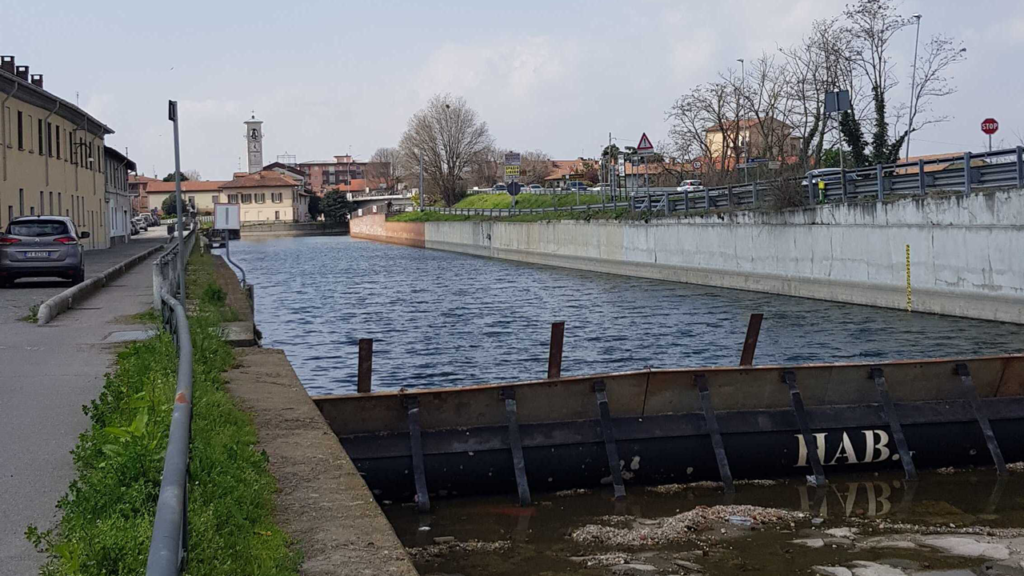
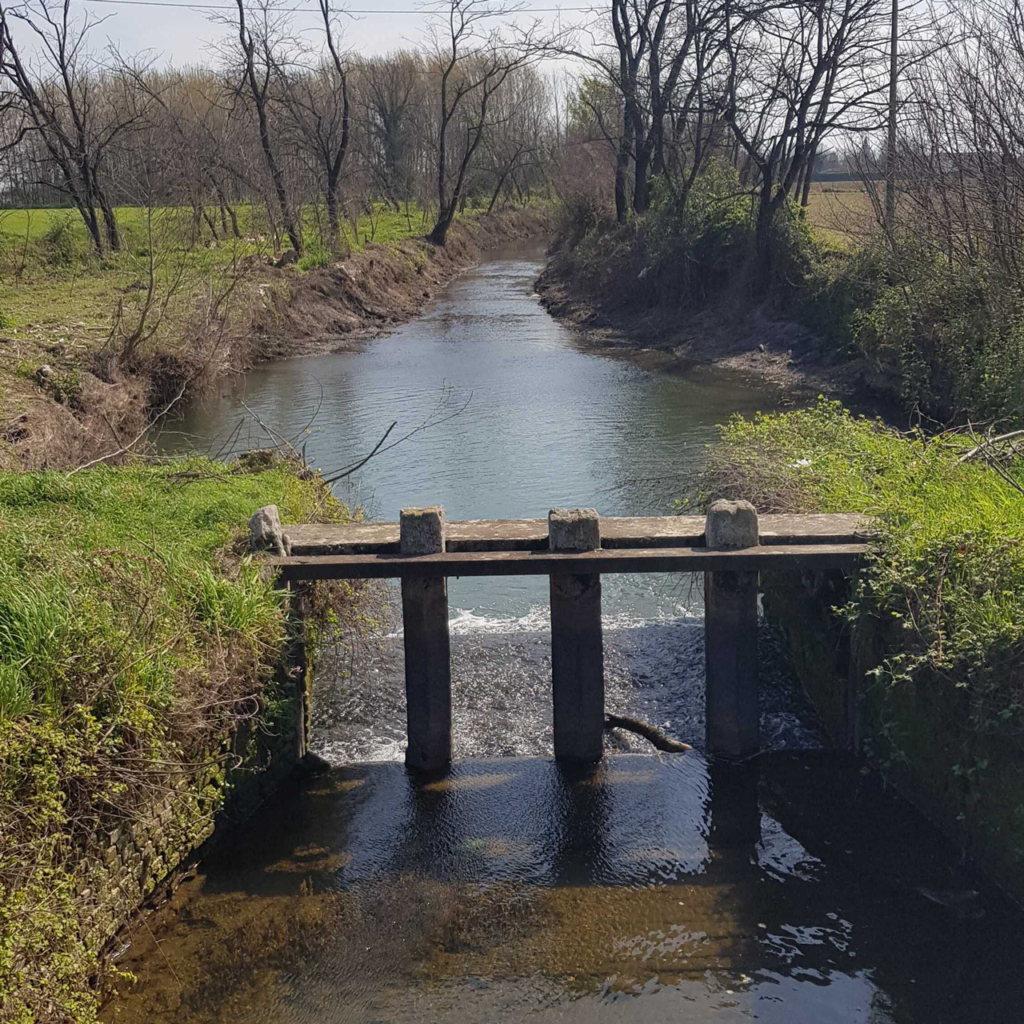
Focus group and listening session
After having gained an initial understanding of the case study, the Design Policy Lab designed a focus group / listening session that brought together the stakeholder involved in the emergency, for:
1) gathering the viewpoints of stakeholders involved in the drought crisis, listening to their direct experience and integrating it into the case study
2) enabling collective reflection on the crisis to identify critical issues for collaborative water management and potential opportunities for the future.
The focus group entitled “Water Resilience Experiment: A Common Experience of Water Resource Management” was held at the Department of Design of Politecnico di Milano in April 2024.
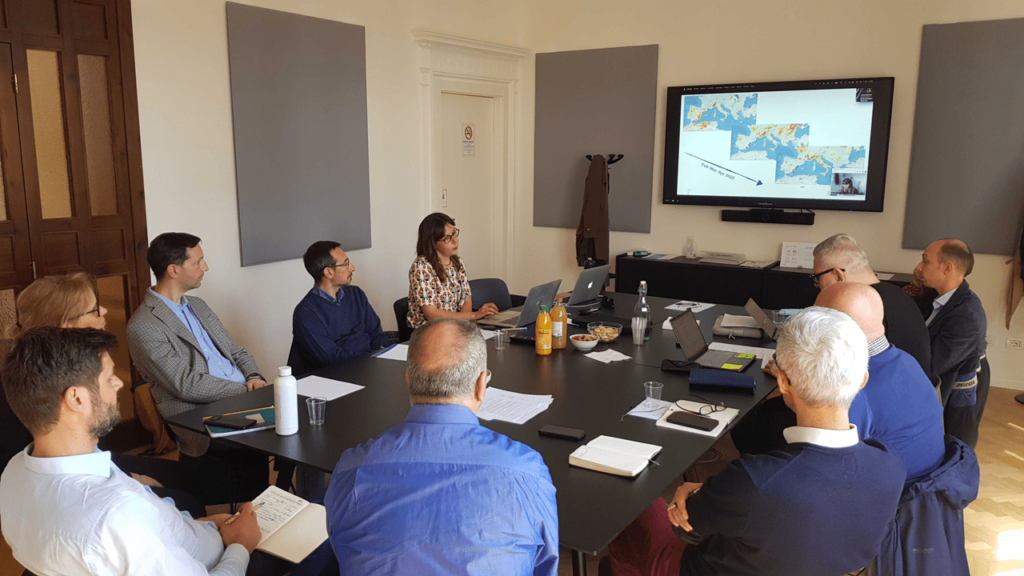
The Design Policy Lab researchers presented four design opportunity areas to spark a discussion among participants.
These inspirational areas were meant to invite participants to consider what happened while also adopting a forward-looking perspective and proposing points to be addressed for future water management in Milan in light of the climate crisis. For grounding the discussion, each area was substantiated by several examples of good practices in Europe.
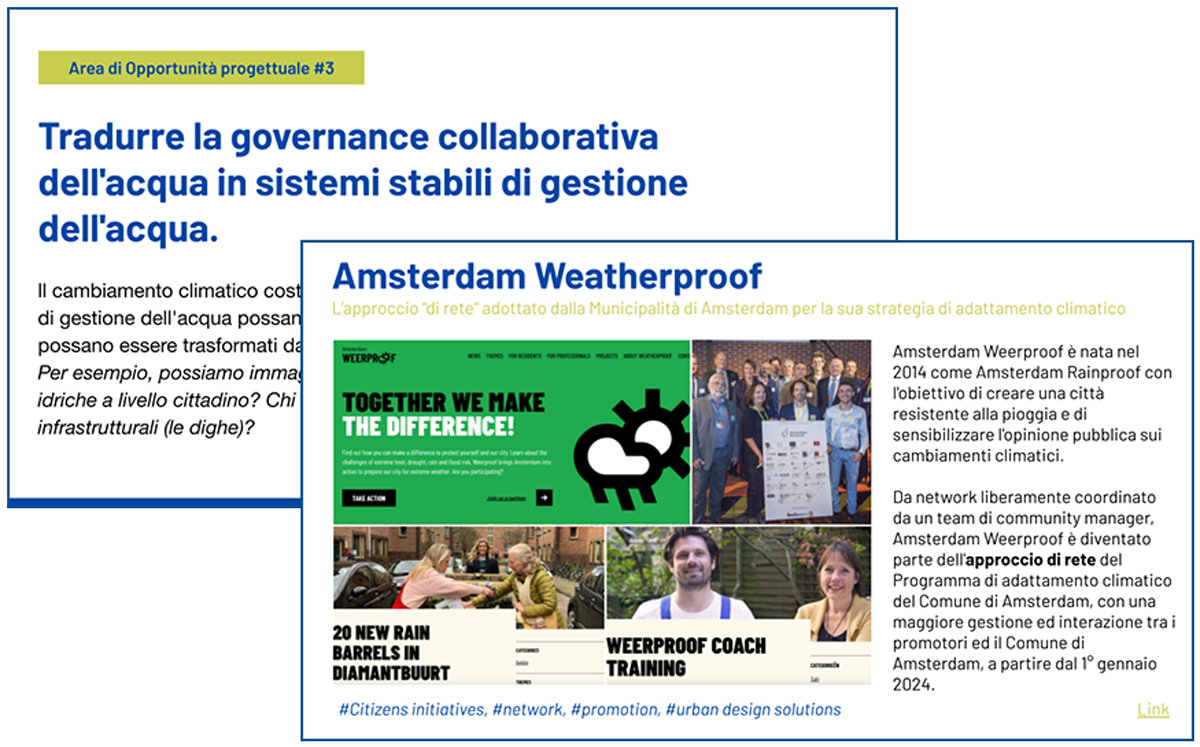
Policy case study and actions points
The work done together with the stakeholders shed light on an existing system of institutional and human capabilities already operating on water in a “climate resilience” perspective in Milan.
The insights deriving from WRE activities in Milan were self-published by the Design Policy Lab in a policy case study format, in which we outline action points for designing climate-resilient water management in European cities.
These actions points aim to guide the future interventions by the European Commission and inspire other local authorities about how to tackle future water-related issues, likely to increase due to climate change.
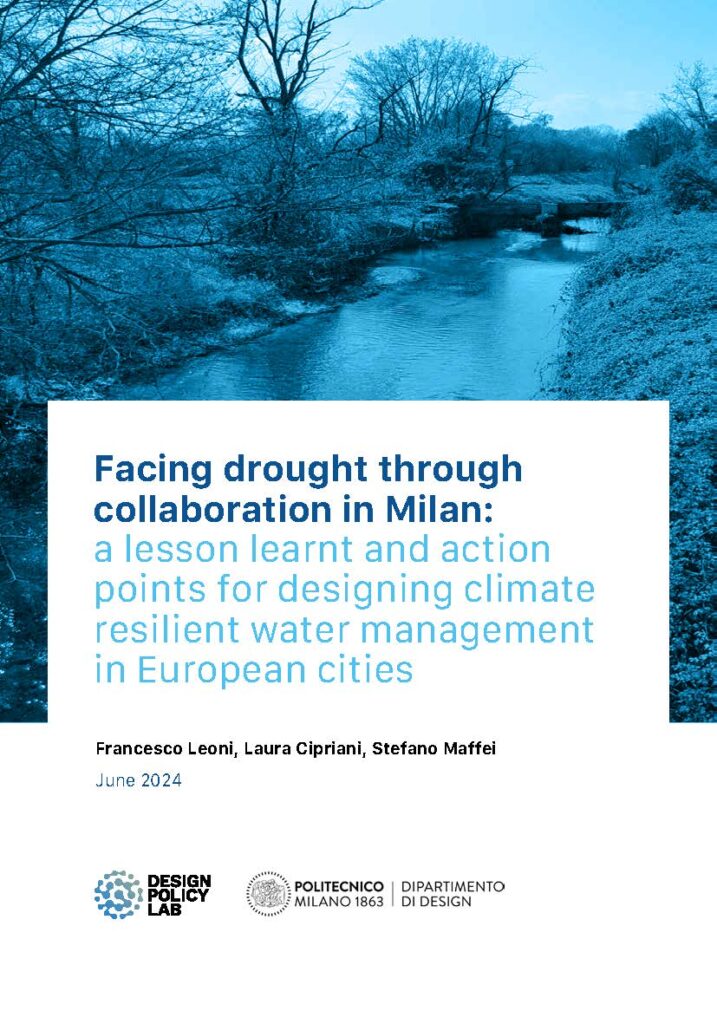
The policy case study “Facing drought through collaboration in Milan: a lesson learnt and action points for designing climate resilient water management in European cities“, can be accessed at the link below or on Zenodo.